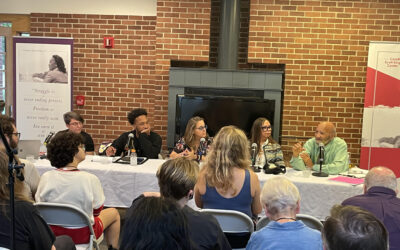
Assistant Professor of Psychology, Téofilo Espada-Brignoni
Understanding human phenomena requires an in-depth analysis of the interconnectedness that arises from a particular culture and its history. Subjectivity as well as a collective subjectivity emerges from human productions such as language and art in a specific time and place. In this article, we explore the role of African-based popular music genres such as bomba and plena as ways of negotiating narratives about Puerto Rican society. Popular music encompasses diverse meanings. Puerto Rican folk music’s subjectivity provides narratives that distance Puerto Ricans from an individualistic cosmovision, allowing us to understand the social and political dimensions of this complex Caribbean culture. The events of the summer of 2019, which culminated in the ousting of governor Ricardo Rosselló from his position, illustrate how music can foster social change.
Additionally, the journal Rock Music Studies published another of Dr. Espada-Brignoni’s articles, “Jazz, Pandemics, and Our Stubborn Humanity,” in which he provides a personable account of the meaningful bonds that music helps create. He writes, speaking of Yellow Springs and his work at Antioch College:
In this small town, I met several musicians with whom I have played for the last year and a half and who treat me as if we have known each other for decades. I have played more blues in a year with them than I had ever played before in my life. I have been playing jazz and classical duets with a wonderful multi-instrumentalist musician. And I played flute and oboe with a group that played bluegrass and American folk music until the lockdowns began in Ohio.
Before and during the pandemic, music has been one of the few things that keeps me relatively sane and alleviates my homesickness. It is a collective art form that creates and reinforces bonds with many wonderful friends I have made in the past couple of years. Yet, throughout human history, national and global health crises have left their visible and invisible marks on the possible paths that music, its performers, and its audiences take.



